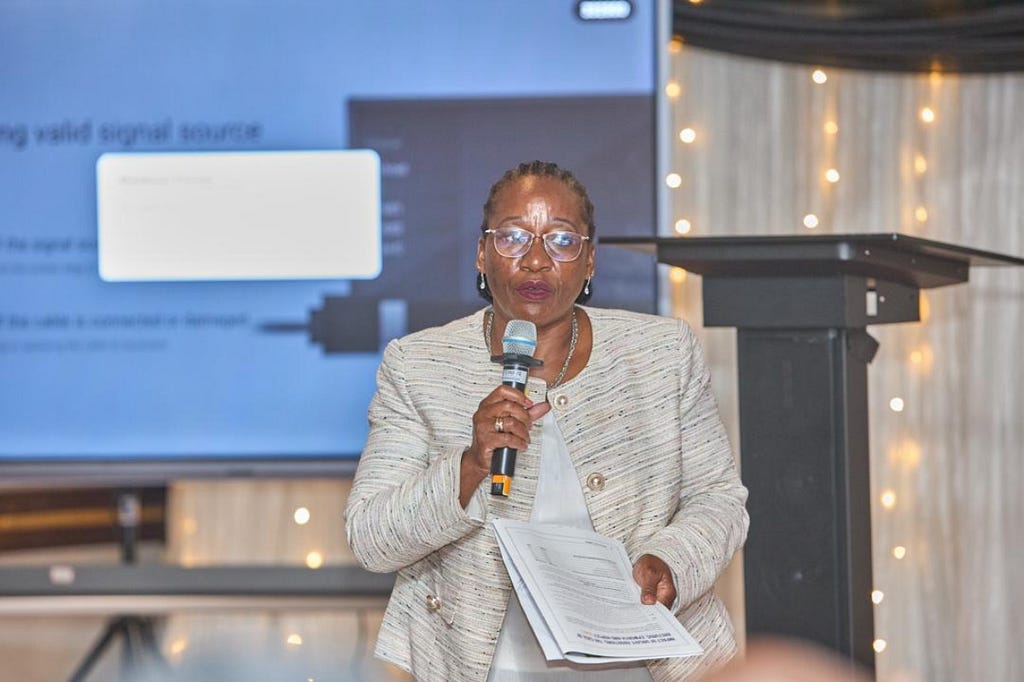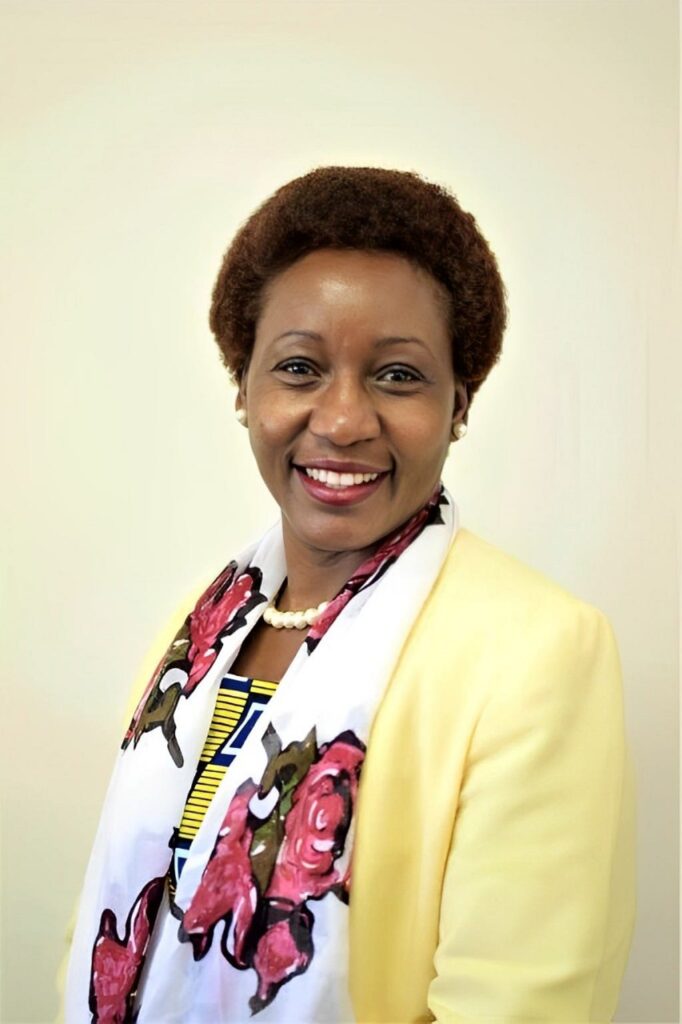Throughout my life, I have learned to always count my blessings and be thankful. Things don’t always go the way I would want them to every day, but I must always be thankful. Each week, I write something that has inspired me and from this, I have quite a number of quotes which could easily be my favourites.
As part of my series about “individuals and organizations making an important social impact”, I had the pleasure of interviewing Dr. Mildred Mushunje.
Dr. Mildred Mushunje (BSW; MEd Gender, PhD Social Work) is an award-winning Social Worker, recognized by the International Federation of Social Workers for her work on ending violence against women and children in Africa. Her research areas include gender equality, social protection, decolonisation, indigenous knowledge systems, child protection and sexual reproductive health and rights. She is the founding chairperson of the Institute of Women Social Workers, a growing feminist movement that seeks to contribute to social justice. She is the Zimbabwe Country Director of Sexual Reproductive Health and Rights Africa Trust — an organization that advances young people’s access to comprehensive health services. She also gives back to society in various ways, including supervising Masters and Phd social work students working on their theses. She sits on several national, regional and international Boards.
Thank you so much for joining us in this interview series! Can you tell us a story about what brought you to this specific career path?
I have always felt I could contribute something significant to society. My path to social work training was inspired by a friend’s mom who was a social worker and she worked in a probation home with girls who were in conflict with the law, or juvenile delinquents as they used to be called. I saw the passion she had when she talked about how she was working with them to become better girls and be the best they could be. I also learned that some had experienced traumatic situations including gender-based violence. It was really surprising and at the same time totally inspiring. Then, one of my relatives got into trouble and she had to be placed in the probation home where my friend’s mom worked. I had first hand interaction with her work. I talked to my mom, who was a teacher, asking her what she thought about the social work profession. It was not very common at the time and not many people understood it. I decided if social work was going to be the profession to equip me with the skills to work with such girls, then it was for me.
Can you share the most interesting story that happened to you since you began leading your company or organization?
I am a founder of the Institute of Women Social Workers — a non-profit organization that works for gender equality and social justice. It arose out of my desire to contribute to the many efforts around the globe that are geared towards gender equality. The organization is quite small but in its few years of registration, I have seen some young women being transformed from very timid conservative women, to very bold and confident women.
It has been said that our mistakes can be our greatest teachers. Can you share a story about the funniest mistake you made when you were first starting? Can you tell us what lesson you learned from that?
One of my biggest shortfalls has been over trusting. I don’t want to call it a mistake but a learning point. Perhaps because I am unassuming and always tell people about myself as being “what you see is what you get.” I will not pretend otherwise. So, I shared some ideas with some people about the vision I had for the Institute. I was discouraged by some people who said there were too many similar efforts already and I should really just try and find something else to spend my energy on.
Can you describe how you or your organization is making a significant social impact?
I mentor young women in leadership. I have seen the transformation of the young women that I have mentored.
Can you tell us a story about a particular individual who was impacted or helped by your cause?
Yes, the Institute’s first Programme Manager started off as an intern. In her own words, she says I was a “Godsend to her.” We met at a time when she was quite vulnerable and needed some affirmation. I guided her to become the first Programme Manager and today, she confidently makes presentations, stands for other women and has such amazing self agency. I am so proud of her!.
Are there three things the community/society/politicians can do to help you address the root of the problem you are trying to solve?
- Fully enforce laws. Here, in Zimbabwe, we still have communities that practice child marriages. Society should stand together against this abhorrent practice.
- The allocation of more resources to funding women’s rights organizations by policy makers. These are at the forefront of addressing gender based violence but they are insufficiently resourced.
How do you define “Leadership”? Can you explain what you mean or give an example?
Leadership is being able to support the next person to be the best they can be. If I can open doors for young women to access spaces that could positively impact their lives, I would say I would have exercised some leadership. It is also about allowing upcoming leaders to stand on my shoulders, learn from me — but I also learn from them. There has to be a multi-directional transfer of knowledge. Leadership is also about being creative and adaptive.

What are your “5 things I wish someone told me when I first started” and why. Please share a story or example for each.
- To be unapologetic in my quest for doing what I do.
- There is never a right time. Start and the ideas will continue to generate. As long as God is in it, it will bear fruit.
- Not everyone is on your side, even when they think or pretend they are.
- Small multiple gains are important to keep the energy levels high to tackle the next task at hand.
- Some people are for a season and I should not unnecessarily cling on when the season is over.
You are a person of enormous influence. If you could inspire a movement that would bring the most amount of good to the most amount of people, what would that be? You never know what your idea can trigger. 🙂
It would be a movement that brings the collective of women together.
Can you please give us your favorite “Life Lesson Quote”? Can you share how that was relevant to you in your life?
Gratefulness is a purposeful way of life. Be intentional about being grateful for the daily benefits that accrue to you. With a daily dose of gratefulness, you will realise how fortunate you are.
Throughout my life, I have learned to always count my blessings and be thankful. Things don’t always go the way I would want them to every day, but I must always be thankful. Each week, I write something that has inspired me and from this, I have quite a number of quotes which could easily be my favourites.
Is there a person in the world, or in the US with whom you would like to have a private breakfast or lunch with, and why? He or she might just see this, especially if we tag them. 🙂
I would love to have breakfast with Oprah Winfrey. She is so “out there” and in my view, very clear about what she is about regardless of the things she has experienced growing up.
How can our readers further follow your work online?
I am on LinkedIn: https://www.linkedin.com/in/dr-mildred-nyaungwa-mushunje-2b4a6296/
Facebook: https://www.facebook.com/mildred.mushunje.52
This was very meaningful, thank you so much. We wish you only continued success in your great work!
Social Impact Heroes: Why & How Dr Mildred Mushunje Is Helping To Change Our World was originally published in Authority Magazine on Medium, where people are continuing the conversation by highlighting and responding to this story.
